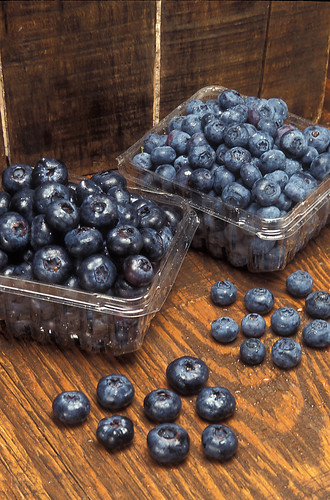
ARS is looking for volunteers for a study examining how the body absorbs plant-derived nutritional compounds, called polyphenols, which are found in apples, berries and tea.
This post is part of the Science Tuesday feature series on the USDA blog. Check back each week as we showcase stories and news from the USDA’s rich science and research portfolio.
How would you like to learn more about your personal health while contributing to science as a volunteer in a human nutrition research study?
Seventeen years ago, I saw an ad for such a study. I attended an information session to learn more, applied and was accepted. Looking back, it was a positive experience for me, and I’d do it again if I could.
I worked then—and still work—for the USDA Agricultural Research Service (ARS). In 1997, ARS researchers were looking for about 50 volunteers for a study of different types of fats, mainly to see how these fats affected cholesterol and other measurements of our health.
The study required some real self-discipline. For six months, we could only eat the food that was prepared for us. It was a half-year of eating breakfast at the ARS Beltsville Human Nutrition Research Center in Beltsville, Maryland, taking our lunches with us after breakfast, and then returning in the evening for dinner. On Friday night, they gave us a giant cooler filled with all of our weekend meals.
Working for a scientific research agency, I have a keen interest in science and, in particular, human nutrition. I thought it would be interesting to experience a research study from the inside. Also, I felt like I was helping scientists learn more about what constitutes a healthy diet.
We also had opportunities to do side studies—including spending 24 hours inside a small room called a calorimeter, which measures how many calories your body burns. I volunteered for that, too.
There is still a need for people to volunteer for human nutrition research studies nowadays. We are still learning about food and how the human body uses it. For example, ARS will soon be seeking volunteers who will be compensated for a 10-week study beginning around October 1 and running through December that will measure how the body absorbs plant-derived nutritional compounds, called polyphenols, in apples, berries and tea.
Like the study I was in, this is a controlled-diet study, meaning you eat only the foods provided. If you are interested in learning more about food and how it may affect your health, you can visit the website at www.usdanutritioncenter.us, email the study researchers at volunteers@ars.usda.gov, or call 301-504-5454 and leave a message. You’ll need to attend an information session as well.
I hope you’ll consider it.

Volunteers still play an important role in human nutrition research studies and help us learn more about how our bodies benefit from the food we eat.
No comments:
Post a Comment